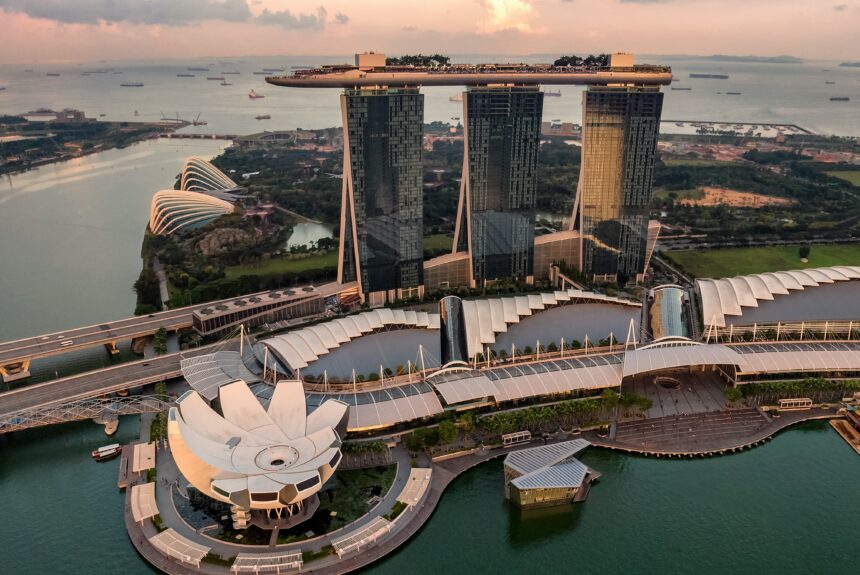With COP28 officially over, let’s look at the ways some individual countries are showing leadership in green growth.
Not long ago, most countries just focused on the bottom line: Gross Domestic Product (GDP). A positive GDP meant a growing economy. But there is a new factor these days. Countries need economic development, but more and more people are demanding not just growth, but green growth. Countries, and their leaders in particular, are looking for ways to grow while having less impact on the environment. But what does green growth mean? And how do you measure it?
>>>READ: Economic and Environmental Lessons from Korea
It’s important to consider that for something to be green, it must be sustainable: able to be sustained over a long period of time, and ultimately beneficial. No country can afford to invest in green energy if it leads to a weakened economy or national security. Sustainable green growth must thread the needle of improving a country’s economic, environmental, and national security. One without the others is not sustainable.
Many countries are succeeding at threading that needle. The solutions will look different from country to country, region to region, and continent to continent. Still, the best way to encourage green growth is by allowing people to live and work in economic freedom.
A country’s commitment to economic freedom results in more wealth and human progress, which increases the available resources and technologies to invest in environmental protection. Free economies are clean economies where people and planet alike can flourish. This is true at the macro level, as our Free Economies Are Clean Economies report shows in great detail. At the micro level, however, economic freedom manifests in different ways.
Consider Singapore. The small nation on the Malay Peninsula earns the honor as the freest economy in the world according to the Heritage Foundation’s Index of Economic Freedom. “Singapore is ranked first out of 39 countries in the Asia–Pacific region, and its overall score remains significantly higher than the world and regional averages.”
The country’s economic freedom encourages Singapore to use the power of markets to shape the energy sector.
“One of the key tenets of Singapore’s sustainable energy strategy is to price energy right. Singapore is the first country in Asia to liberalize our electricity market. This allows the market to set the price of electricity, without any subsidies, thereby reflecting resource scarcity and promoting judicious usage,” the government reports. “Since 2001, we have opened up the electricity generation and retail markets to commercial players, established a regulatory framework and introduced a wholesale electricity market with spot bidding every 30 minutes.”
>>>READ: Economic and Environmental Lessons from Taiwan
Singapore is finding ways to generate more electricity with fewer emissions. “About 95 per cent of Singapore’s electricity is generated from natural gas, which is the cleanest form of fossil fuel, as it produces the least amount of carbon emissions per unit of electricity,” CNA reports. “Using natural gas has allowed Singapore to cut the amount of carbon it releases into the atmosphere.”
The country is also importing renewable energy, and it opened the largest energy storage system in Southeast Asia earlier this year. That will help it manage supply and demand at times when the sun isn’t out.
Singapore highlights the fact that growth is good for the economy and for ecology. In recent decades, Singapore’s population increased and its economy grew, but so did green spaces. “Green cover was about 36% in the 1980s and it now stands at 47%,” the Center for Liveable cities reported.
CNN adds that, “while the word ‘green’ can take on a variety of connotations, Singapore appears to encompass them all – lush environments, renewable energy and future sustainability.” Because of that, CNN expects that Singapore will have no problem living up to its pledge “to reduce its greenhouse gas emissions by 16% below business as usual levels in 2020.” Especially, we would add, if it remains focused on expanding economic freedom as it grows.
COP28 has officially closed and C3 Solutions was there hosting events and promoting the importance of economic freedom. Our message was one of hope that balances the reality of the need for green growth that is truly sustainable. For the sake of people and the planet, we need leaders to listen and to act.
The views and opinions expressed are those of the author’s and do not necessarily reflect the official policy or position of C3.
